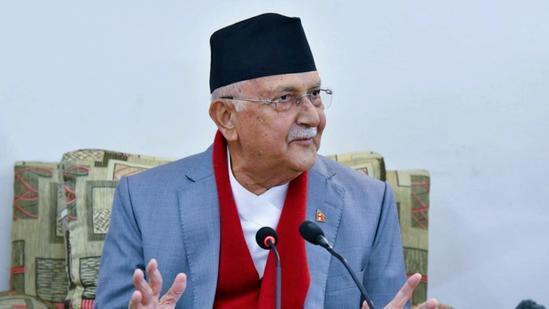
Our Delhi Embassy Sent 2 Officers to Counsel Nepali Students: Oli
In recent weeks, the Indian state of Odisha has been in the spotlight for all the wrong reasons. Over 500 Nepali students were asked to leave the Kalinga Institute of Industrial Technology (KIIT) campus, sparking widespread outrage and concern. The situation took a tragic turn when a Nepali girl was found dead by suicide on the campus on Sunday.
In response to the crisis, Nepal’s Prime Minister KP Sharma Oli has assured that his government is taking concrete steps to support the affected students. Speaking to the media, Oli revealed that his country’s embassy in New Delhi had dispatched two officers to counsel the students.
“Their (embassy officers) primary responsibility is to counsel the students and provide them with necessary guidance,” Oli stated. “We have made arrangements to ensure that they have the option to either remain in their hostel or return home.”
The sudden eviction of the Nepali students from the KIIT campus has raised eyebrows and sparked a heated debate about the rights of international students in India. The students, who were pursuing various courses including engineering, management, and science, were told that their visas had been cancelled and they had to leave the campus immediately.
The incident has also brought to the fore the issue of student safety and well-being in India. The death of the Nepali girl by suicide on the campus has sent shockwaves across the country, with many calling for urgent action to address the mental health concerns of international students.
The KIIT campus, located in Bhubaneswar, Odisha, has a significant number of international students from Nepal, Bhutan, and other countries. However, the recent eviction of the Nepali students has highlighted the lack of support systems in place for international students in India.
Despite the challenges faced by the Nepali students, Oli has expressed confidence in the ability of his government to resolve the issue amicably. “We are in close touch with the Indian government and we are confident that the issue will be resolved soon,” he said.
The Nepali government has also extended its support to the affected students, offering to provide them with necessary assistance and guidance. “We are committed to ensuring the well-being and safety of our students in India,” Oli stated. “We will do everything possible to support them during this difficult time.”
The incident has also led to a diplomatic row between Nepal and India, with Oli accusing the Indian government of not doing enough to address the issue. “We expect the Indian government to take concrete steps to address the concerns of our students,” he said.
The KIIT campus, which was once a beacon of hope for international students, has now become a symbol of the challenges faced by students from Nepal and other countries in India. However, with the Nepali government’s intervention, there is hope that the situation can be resolved and the affected students can return to their normal lives.
In conclusion, the crisis faced by the Nepali students in India is a stark reminder of the importance of student safety and well-being. As governments and educational institutions, it is our responsibility to ensure that international students have access to necessary support systems and resources. The incident is also a wake-up call for India to address the concerns of international students and provide them with a more welcoming and inclusive environment.
Source: https://x.com/kpsharmaoli/status/1891473623476511104




